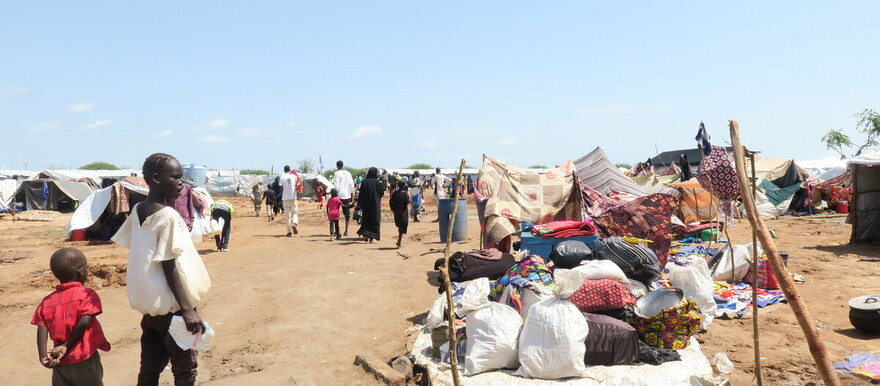Six months since the outbreak of the conflict in Sudan on 15 April, thousands of people fleeing the fighting are still arriving in South Sudan daily, the United Nations said.
“Nobody had imagined that six months on, we would still be witnessing such large daily inflows,” said Marie-Helene Verney, Acting UN Humanitarian Coordinator to South Sudan.
Since the start of the conflict, South Sudan has received more than 310,000 new arrivals from Sudan as of 13 October, including South Sudanese returnees, refugees and third-country nationals, UN figures show.
“As the weeks go by, people arrive with less and less resources and in increasingly worse states of health, with malnutrition also on the rise among new arrivals as conditions in Sudan deteriorate further,” emphasized Marie-Helene Verney.
Poor infrastructure and in particular lack of roads, flooding and funding constraints are severely testing the capacity of humanitarian actors to respond both at the border and in receiving communities, as well as putting pressure on onward transportation, which remains the most critical need in this response.
Verney said that IOM and other humanitarian partners have assisted approximately 150,000 people to move on to final destinations so far and the Government of South Sudan has also provided transport to thousands, while many others have made their own way to their communities.
“This crisis has stretched the humanitarian response in South Sudan close to breaking point. With no end in sight, a global decrease in humanitarian funding and more new conflicts breaking out around the world, humanitarian partners are increasingly forced to deprioritize even life-saving activities. In such a context, the Government of South Sudan is called upon to step up the delivery of basic services in vulnerable communities, with the support of development actors,” underscored the Acting Humanitarian Coordinator.
The Acting Humanitarian Coordinator said additional funding is needed by the end of the year to provide life-saving nutrition services to thousands of children arriving from Sudan with moderate and severe acute malnutrition, as well as access to adequate water, sanitation and hygiene services and facilities.
Verney further said additional funding is also needed to provide adequate space in overcrowded transit centres to reduce the risks of disease outbreaks and gender-based violence.




